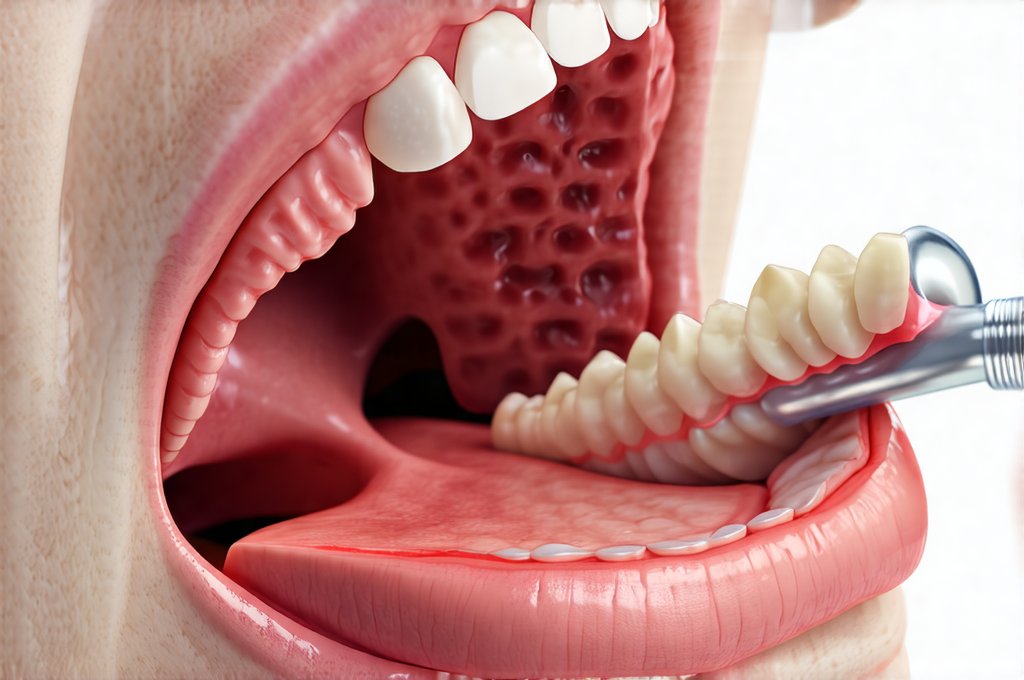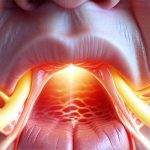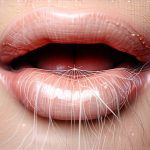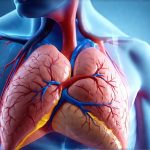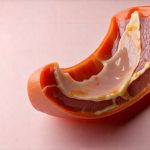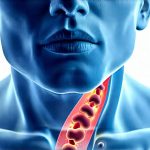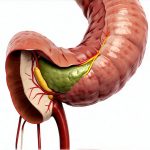Gastroesophageal reflux disease (GERD) is a surprisingly common condition, affecting millions worldwide. Most people associate GERD with heartburn – that burning sensation in the chest – but its manifestations are far more diverse than many realize. Beyond the typical symptoms, individuals often experience a range of less-obvious issues, including discomfort and unusual sensations in the throat. One frequently reported phenomenon is clicking or popping sounds within the throat, sometimes accompanied by a feeling of something being stuck or a lump in the throat (globus sensation). This can be understandably unsettling, prompting questions about its connection to GERD and what it signifies for overall health. It’s crucial to understand that these sensations aren’t necessarily indicative of a serious problem but warrant attention and investigation, particularly if persistent or concerning.
The relationship between GERD and clicking/popping in the throat isn’t always straightforward. While not a classic symptom listed in textbooks, it arises from the complex interplay between acid reflux, esophageal inflammation, and the mechanics of swallowing. Repeated exposure to stomach acid can irritate the esophagus and even reach the larynx (voice box) and pharynx (throat), causing inflammation and changes in tissue structure. These alterations, combined with muscle imbalances or tension, can lead to clicking or popping sounds during swallowing or even at rest. The sensation is often described as a subtle “click,” a more pronounced “pop,” or even a feeling of crepitus – a crackling sound. Understanding the potential mechanisms behind this phenomenon is key to addressing it effectively and managing underlying GERD symptoms.
Throat Clicking/Popping: Mechanisms & Connections to GERD
The precise mechanism causing these sounds remains an area of ongoing research, but several contributing factors have been identified. One leading theory centers around small air bubbles forming within the tissues of the throat or esophagus due to inflammation caused by acid reflux. These bubbles can then collapse during swallowing or vocalization, creating a clicking or popping sound. Another possibility relates to changes in hyoid bone (a U-shaped bone in the neck supporting the tongue) positioning or tension in surrounding muscles. Chronic GERD and associated muscle spasms can alter the way these structures interact, leading to audible clicks as they move. Finally, esophageal dysmotility – a disruption in the normal wave-like contractions of the esophagus that moves food down – can contribute to air swallowing (aerophagia), potentially creating bubbles or altered pressure dynamics within the throat.
It’s important to note that these sounds aren’t always caused by GERD alone. Other conditions, such as temporomandibular joint (TMJ) disorders, vocal cord dysfunction, and even simple muscle tension can mimic similar sensations. However, in individuals with a confirmed diagnosis of GERD or experiencing typical reflux symptoms, the likelihood of a connection is significantly higher. The sound might become more noticeable after meals, when lying down, or during periods of increased stress – all factors known to exacerbate GERD symptoms. Identifying the triggers and correlating them with symptom onset can provide valuable clues for both patients and healthcare professionals.
Furthermore, the sensation of something being stuck in the throat (globus sensation) often accompanies clicking/popping sounds. Globus is not a physical obstruction but rather a perceptual issue – a feeling that something is present when nothing actually is. It’s frequently linked to GERD-related inflammation and esophageal hypersensitivity, where the esophagus becomes overly sensitive to even normal sensations. The combination of these factors can create a distressing experience for individuals, impacting their quality of life and leading to anxiety about potential serious underlying conditions.
Identifying Potential Causes & Seeking Evaluation
Differentiating between GERD-related throat clicking/popping and other possible causes requires careful evaluation by a healthcare professional. A thorough medical history will be taken, focusing on reflux symptoms, dietary habits, lifestyle factors, and any associated discomfort. Physical examination may include assessing vocal cord function and checking for muscle tension in the neck and jaw. To rule out other conditions, such as TMJ disorders or structural abnormalities, additional tests might be ordered:
- Laryngoscopy: This procedure involves using a small camera to visualize the larynx (voice box) and surrounding structures. It can help identify inflammation, vocal cord dysfunction, or other potential issues.
- Esophageal Manometry: This test measures the pressure and coordination of esophageal contractions, assessing for dysmotility or other functional abnormalities.
- pH Monitoring: This involves placing a small probe in the esophagus to measure acid exposure over a period of time (typically 24-48 hours). It’s considered the gold standard for diagnosing GERD.
It’s crucial to avoid self-diagnosing and instead seek professional guidance. While many cases of throat clicking/popping are benign and related to GERD, it’s essential to rule out other potential causes and receive appropriate treatment recommendations. Ignoring persistent symptoms could lead to delayed diagnosis and unnecessary anxiety. Understanding the role of antacids can be helpful during evaluation.
Lifestyle Modifications & Initial Management Strategies
For individuals experiencing throat clicking/popping linked to GERD, lifestyle modifications often form the cornerstone of initial management. These changes aim to reduce acid reflux and minimize irritation to the esophagus and throat:
- Elevate the head of your bed by 6-8 inches using blocks or a wedge pillow. This helps prevent stomach acid from flowing back up into the esophagus during sleep.
- Avoid trigger foods, such as fatty meals, spicy foods, chocolate, caffeine, alcohol, and carbonated beverages. Keeping a food diary can help identify personal triggers.
- Eat smaller, more frequent meals instead of large ones. This reduces pressure on the lower esophageal sphincter (LES).
- Maintain a healthy weight. Obesity increases intra-abdominal pressure, contributing to reflux.
- Avoid lying down immediately after eating. Wait at least 2-3 hours before reclining.
In addition to these lifestyle changes, over-the-counter medications can provide temporary relief from GERD symptoms:
- Antacids neutralize stomach acid and offer quick but short-lived relief.
- H2 blockers reduce acid production for a longer duration.
- Proton pump inhibitors (PPIs) are the most potent acid suppressants, but should be used under medical supervision due to potential long-term side effects. Chewing gum can also offer some relief in certain situations.
Long-Term Management & When to Seek Further Intervention
While lifestyle modifications and over-the-counter medications can effectively manage mild to moderate GERD symptoms, some individuals may require more intensive treatment. If symptoms persist despite these measures, or if complications develop (such as esophagitis or Barrett’s esophagus), a healthcare professional may recommend further intervention. Prescription-strength PPIs or other medications might be prescribed, and in severe cases, surgical options such as fundoplication (a procedure to strengthen the LES) may be considered.
Regular follow-up with a gastroenterologist is essential for monitoring GERD progression and adjusting treatment as needed. It’s also important to address any underlying psychological factors contributing to symptom perception or anxiety. Stress management techniques, such as yoga, meditation, or therapy, can play a valuable role in overall well-being and symptom control. Remember that managing GERD is often a long-term process requiring ongoing commitment and collaboration with your healthcare team. The connection between GERD and hiccups can sometimes be overlooked, but it’s important to remember. The clicking or popping sensation in the throat may diminish as reflux is controlled, but consistent adherence to treatment plans and lifestyle adjustments is key to achieving lasting relief. Understanding the liver’s role is also important for overall health. Additionally, recognizing the impact of food and mood in kids can help create a holistic approach to wellbeing. Finally, it’s worthwhile exploring GERD and throat clearing as another related symptom.

